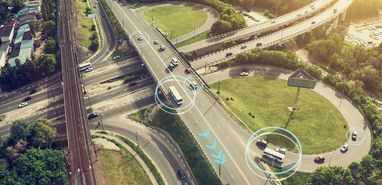
In the late 1970s, the US military launched a technology program that would become known as the global positioning system (GPS). The system’s purpose was to help military planners accurately track military assets and manage troop movements around the world. In 1983, however, the system opened for use by the public and changed the world forever.
Today, most people can’t live without GPS. It’s in our cars. It’s in our smartphones. It even lets us track our eCommerce purchases to our front doors. And it’s only getting better. Last year, a new fleet of GPS satellites started coming online to further enhance the service. They will, among other things, feature superior positioning accuracy and resilience against signal jamming.
In honour of the GPS’s many contributions to our modern lives — and to demonstrate how essential it is — we’ve decided to highlight some of the lesser-known uses of GPS in the world today. By the end, hopefully, you’ll have a much greater appreciation of all of the ways that GPS has made all of our lives better. Let’s dive in.
Increasing Supply Chain Efficiency
Remember how we mentioned that GPS lets us track our eCommerce purchases on their way to our doors? That turns out to be only the tip of the iceberg when it comes to GPS use in global supply chains. Modern supply chains rely on GPS at every stage. Without it, businesses would never be able to source products more than a few miles away from their logistics hubs.
A key use of GPS in the process is for the purpose of fleet tracking. By installing a GPS transceiver in every vehicle used to move products from manufacturers to sellers and then to consumers, businesses gain complete product transit visibility. For one thing, this allows them to more efficiently allocate transportation assets to keep goods flowing. For another, it makes just-in-time manufacturing processes possible — which is the reason the price of so many goods has fallen in recent decades.
Protecting Vulnerable Children and Seniors
GPS technology also helps us to keep track of vulnerable children and seniors to keep them out of harm’s way. Parents with young children can use GPS tracking devices to monitor their kids’ whereabouts when they’re away from home. There have already been multiple documented cases where child GPS tracking devices helped reunite children with their parents or guardians — sometimes in the nick of time.
They’re also used to help caregivers keep track of elderly patients with dementia or other cognitive problems. In parts of the UK, GPS tracking devices sharply reduced incidents of elderly missing person reports reaching police since seeing wide use. When you consider that missing person reports typically indicate that the subject’s been missing for hours already, that’s a big deal. It means that caregivers find vulnerable seniors and bring them home before they end up in a dangerous situation.
Creating Unique Gaming Experiences
A few years ago, a new mobile gaming craze sent people all around the world looking high and low for little imaginary creatures. Pokémon Go changed the mobile gaming landscape in that it set a new standard for mobile game interactivity and leveraged augmented reality in a big way for the first time in a game.
Since then, a wide array of new games launched that follow Pokémon Go’s example. Using GPS to track players’ movements in real-time and in the real world, gaming companies can now create ground-breaking new experiences that leap off of the screen and into the environment around them. One company is even building an in-car entertainment system that merges GPS data with an AR headset to create unique games that incorporate vehicle movement and acceleration.
Wildlife Protection and Tracking
As humans have encroached further and further on the few wild spaces left on earth, a growing number of the world’s animal species are on the verge of losing their habitats. That has led to an unprecedented surge in endangered species, with as many as 2,000 types of animals going extinct each year. To combat the problem, public entities and private organizations go to great lengths to catalogue and track the remaining members of critically endangered species. GPS is a big part of how they do it.
All over the world, scientists and ecologists use GPS tags and collars to keep tabs on animal populations they’re trying to protect. That allows them to manage animal habitats and inform efforts to prevent poaching and other unauthorised killings of protected species. The fact that anyone may utilise GPS data for free has even made GPS a central component of the OpenCollar initiative — which aims to create an open-source animal tracking standard to aid in conservation efforts worldwide.
A Multipurpose Critical Technology
Any way you look at it, GPS is one of the most important technologies in the world. In its widespread use, it is likely second only to the internet in adoption — and with good reason. Now that you’re aware of some of the less well-known examples of GPS use, it should be clear what a flexible multirole technology it is. So, the next time you’re fetching driving directions to get to an appointment or find a theatre playing the movie you want to see, spare a moment to think about how hard those simple things used to be without GPS. And take a moment to marvel at how many other ways GPS has made the world a better and safer place to live for all of its inhabitants.
By Andrej Kovacevic
Updated on 13th October 2022